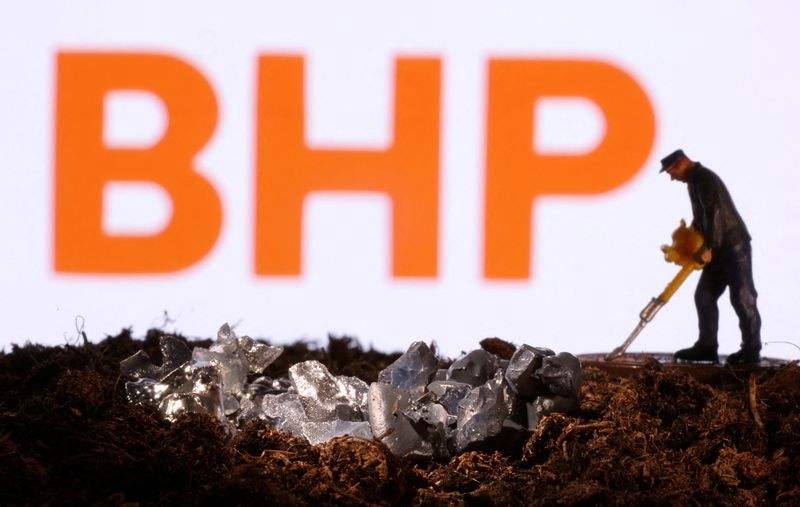By Clara Denina and Zandi Shabalala
LONDON – Big miners, under pressure to increase their exposure to minerals needed to drive the electric vehicle revolution, have so far opted for the cautious approach of joint ventures with small explorers rather than buying them outright.
Shareholders will scrutinise quarterly results and statements in this month’s earning season for news on battery metals such as copper, nickel, cobalt and lithium, used in batteries and renewable energy.
But the miners will also be keen to retain the loyalty of shareholders they have lured with dividends and buybacks to a high-risk sector that remembers reckless spending in previous commodity booms that were followed by bust.
Joint ventures, rather than outright acquisitions, have the advantage of spreading the risks associated with complex minerals that may not provide the margins of the traditional bulk commodities.
As the trend gathered pace, the world’s largest listed BHP Group this month said it had spent $40 million to advance a nickel project in Tanzania through UK-based private developer Kabanga Nickel. The deal also marks its re-entry into Africa.
Such joint ventures can give miners more geographical reach without full exposure to jurisdictions seen as politically challenging.
Over recent years, world number two miner Rio Tinto has been exploring for copper on Canada-listed junior Midnight Sun’s licences in Zambia under a joint venture agreement and Anglo American has been in discussion with Zambian-focused junior Arc Minerals to hunt for copper.
“We expect the diversified miners to enter new geographies in 2022 through the acquisition of early-stage projects,” said James Whiteside, research director at consultancy WoodMac.
But the consultancy predicts large acquisitions this year will remain constrained by a reluctance to buy at high commodity prices that will leave investment growth across metals and mining at multi-year lows.
BHP’s exploration budget for the first half of this year is just $80 million.
That could be a problem for ensuring sufficient battery minerals to meet the expected surge in demand.
In the venture deals, the big miners help with providing for equipment and labour skills, while the assets are mainly run by the smaller exploring company.
“The problem is you need extra supply and …it’s going to need more than M&A,” Richard Marwood, senior fund manager at Royal London Asset Management, said.
Bank of America head of metals research Michael Widmer also said investments in battery metals markets by major miners will not rival spending and profits of established markets such as iron ore, where high margins are far easier to deliver.
“The reality is that for the big mining companies investment in smaller miners doesn’t move the needle that much, but it’s good to show that they are in the battery metals,” he said.
(Reporting by Zandi Shabalala and Clara Denina; editing by Barbara Lewis)
